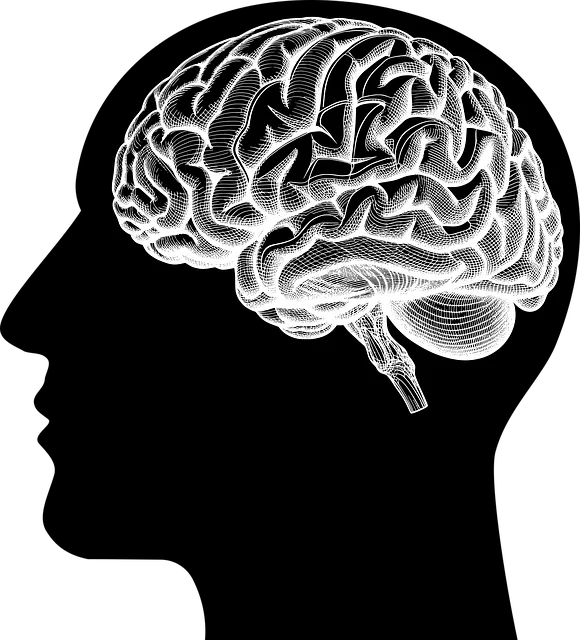Aurora Kaiser Permanente emphasizes early identification and strategic crisis intervention through evidence-based practices, de-escalation techniques, and supportive environments. Their holistic approach integrates mindfulness, cognitive behavioral therapy, and trauma-informed care, fostering resilience and long-term well-being. Post-crisis care focuses on open expression, self-care routines, mental wellness coaching, and affirmations to prevent recurrence and empower individuals in managing future challenges. Aurora Kaiser Permanente mental health services prioritize evidence-based interventions, active listening, and safe, supportive spaces for optimal recovery.
“In the realm of mental healthcare, crisis intervention plays a pivotal role in supporting individuals during times of acute distress. This comprehensive guide explores effective strategies for professionals at Aurora Kaiser Permanente, offering a robust foundation for delivering exceptional care. From early assessment techniques to evidence-based interventions and post-crisis support, each step is crucial in fostering recovery. Discover how Aurora Kaiser Permanente’s mental health services navigate crises, ensuring individuals receive the prompt, personalized, and powerful assistance they need.”
- Understanding Crisis Intervention: A Foundation for Effective Support at Aurora Kaiser Permanente
- Early Assessment and Identification: Recognizing the Signs to Intervene Promptly
- Creating a Safe Space: Establishing Trust and De-escalation Techniques
- Evidence-Based Interventions: Practical Strategies for Mental Health Professionals
- Post-Crisis Care and Follow-up: Supporting Recovery and Preventing Recurrence
Understanding Crisis Intervention: A Foundation for Effective Support at Aurora Kaiser Permanente

At Aurora Kaiser Permanente, we understand that crisis intervention is a critical component of mental health services. It’s a structured and strategic approach designed to provide immediate support during moments of intense distress or impending danger. Our team is meticulously trained to recognize warning signs and offer effective interventions that can prevent escalation and promote positive thinking.
Through a holistic understanding of the individual’s situation, we integrate evidence-based practices tailored to address specific needs, encompassing anxiety relief and stress management techniques. By fostering a safe and non-judgmental environment, our mental health professionals empower individuals to navigate their crises effectively while building resilience for long-term well-being.
Early Assessment and Identification: Recognizing the Signs to Intervene Promptly

Early assessment and identification are crucial steps in crisis intervention. Recognizing the signs of distress can enable prompt action, potentially preventing escalation. Aurora Kaiser Permanente mental health services emphasize the importance of being vigilant for indicators such as sudden changes in behavior, persistent feelings of sadness or hopelessness, and increased isolation. These may suggest underlying mental health challenges requiring attention.
Professionals are encouraged to engage in active listening during interactions with individuals at risk. Observing non-verbal cues, such as body language and tone of voice, can also provide valuable insights. By integrating practices like mindfulness meditation into crisis intervention guidance, self-esteem improvement and emotional regulation become more accessible. This holistic approach ensures a comprehensive strategy that addresses both the immediate crisis and long-term well-being.
Creating a Safe Space: Establishing Trust and De-escalation Techniques

Creating a safe space is a cornerstone of crisis intervention strategies, particularly in mental health services offered by Aurora Kaiser Permanente. This involves establishing an environment where individuals feel secure, understood, and supported. Trust is cultivated through active listening, empathy, and consistent confidentiality, enabling clients to openly share their experiences and concerns. De-escalation techniques, such as deep breathing exercises and calm, assertive communication, play a crucial role in soothing distress and facilitating productive conversations.
By incorporating these methods, Aurora Kaiser Permanente’s mental health services align with the broader goals of Mental Health Policy Analysis and Advocacy, emphasizing evidence-based practices that promote positive outcomes. Stress Reduction Methods are integrated into the intervention process to help individuals manage acute crises and develop coping strategies for long-term Mental Wellness Coaching Programs Development. This holistic approach not only addresses immediate needs but also equips clients with tools to navigate future challenges, fostering resilience and enhancing overall mental wellness.
Evidence-Based Interventions: Practical Strategies for Mental Health Professionals

Aurora Kaiser Permanente mental health services emphasize evidence-based interventions as a cornerstone of their crisis support. These strategies are grounded in rigorous research and proven effective for addressing acute emotional distress and preventing escalating crises. By employing techniques such as cognitive behavioral therapy (CBT), mindfulness practices, and trauma-informed care, mental health professionals can empower individuals to manage stress reduction methods effectively.
Incorporating practical communication strategies is vital within these interventions. Mental health providers are trained to listen actively, validate experiences, and use reflective techniques to foster a safe and supportive environment. Additionally, Aurora Kaiser Permanente promotes the design of Mental Health Education Programs that equip individuals with coping skills, resilience, and resources for long-term well-being. These holistic approaches ensure comprehensive crisis intervention, offering both immediate relief and sustainable strategies for mental health management.
Post-Crisis Care and Follow-up: Supporting Recovery and Preventing Recurrence

Post-crisis care and follow-up are essential components in supporting individuals’ recovery and preventing recurrence. Aurora Kaiser Permanente mental health services recognize that immediate support is crucial, but so is long-term guidance to help individuals rebuild their lives and regain a sense of control. The first step involves creating a safe and supportive environment where individuals can express their feelings and concerns openly. This can be facilitated through individual therapy sessions or group support groups, allowing them to process their experiences and begin the healing process.
One effective strategy is encouraging the development of a self-care routine for better mental health. Mental wellness coaching programs can play a vital role in teaching individuals coping mechanisms, stress management techniques, and healthy habits to improve their overall well-being. Additionally, boosting confidence through various activities and affirmations can empower individuals to navigate future challenges more effectively. By combining these approaches, Aurora Kaiser Permanente aims to ensure that those affected by crises have the necessary tools and resources to thrive and maintain resilience in the face of adversity.
Aurora Kaiser Permanente’s approach to crisis intervention, as outlined in this guide, emphasizes a comprehensive and evidence-based strategy. By understanding the importance of early assessment, creating safe spaces, and employing practical interventions, mental health professionals can provide effective support during crises. This structured framework, tailored to the unique needs of Aurora Kaiser Permanente’s patients, ensures that those facing mental health challenges receive timely and compassionate care, fostering recovery and reducing recurrence.






